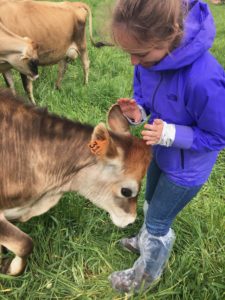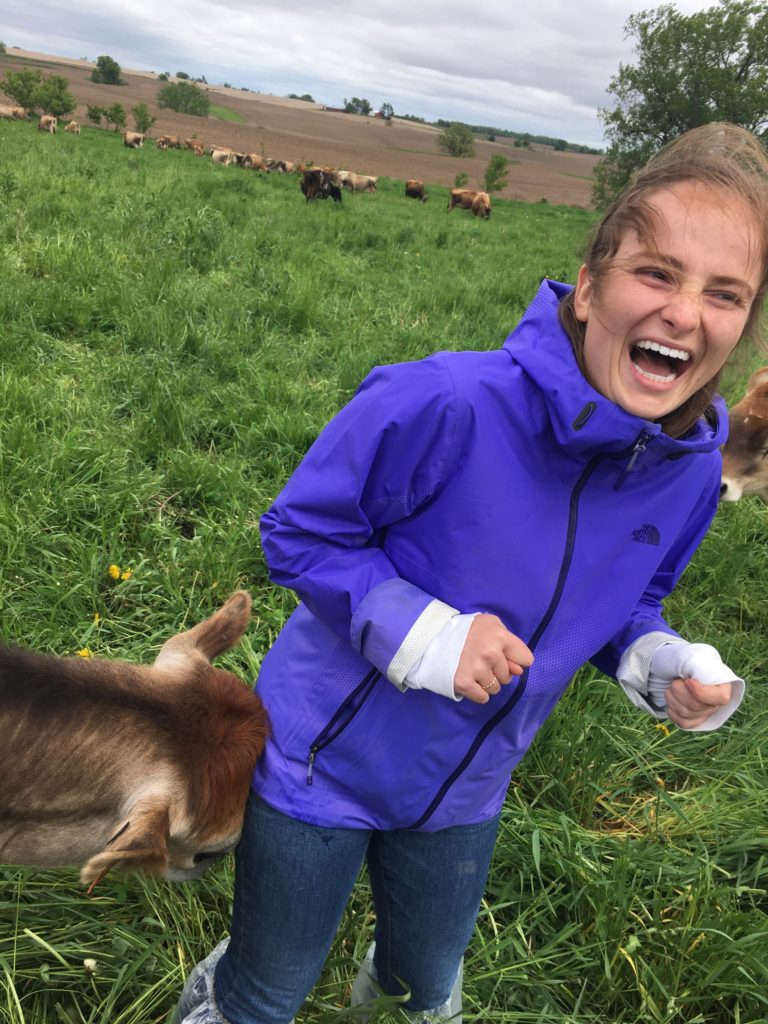Its’ Called “All Natural Eggs & Gluten-Free Ham (disclaimer- that joke was from google)
Today we spent the day with the Kruses, our host family for two nights. They took us to see multiple organic farms that they had connections with. We went to two grass-fed dairy operations and one grass-fed meat operation.
The first dairy we went to was Paint Creek Bulk Food Store, Bakery, and Dairy. It was on an Amish Farmstead. We spoke to two women about the operation they had. It seemed very similar to other small operations we had seen. Most of their stuff is run using batteries, not electricity. The children were playing outside in bare feet in the rain stomping through piles of cow poop. I think kids in Iowa have a very different childhood than I had. They were not fazed by the poop at all.
Next, we went to Jeremy Peake’s farm to see their Organic Grass-fed dairy operation. Here I got some GREAT pictures with his very curious cows. You could tell that the cows were happy with their lives and they all had some little personalities. Jeremy uses a form of mob grazing that he says is a little less intense than that prescribed by the practice’s guru, Joel Salatin.
Last we went to Welsh Family Organic Farm. They had organic chickens, beef, and hogs. Their operation seemed the least free range to me. The chickens were enclosed for most of the time. The pigs had small areas of concrete outside they could go to. The cows had a barn where they were outside standing in piles of mud and poop. There were a couple of heifers standing in grass on another plot. Although the hogs were still not able to access grass or too much free space, you could tell the difference in the pigs. They were not afraid of us when we came near them, they came to the gate to check us out. They were much smaller, a size that seemed more normal for pigs to be. I think this farm was an example of a family that raises organic animals for the price tag, but I may be wrong. Regardless, it is still better than conventional livestock operations, at least for the animal. There are controversies about runoff in outdoor pig operations. I can understand why because we were standing on a river of pig waste, but I also think that’s largely due to the fact that they were on slabs of concrete. What else would happen?
Organic farming as a whole seems to be in more of an experimental phase than conventional farming. Of the four farms we went to, all of them were making changes to their system each season to perfect the way that they raise livestock and crops.

